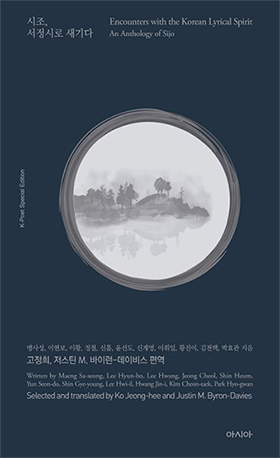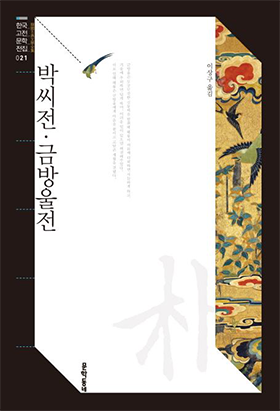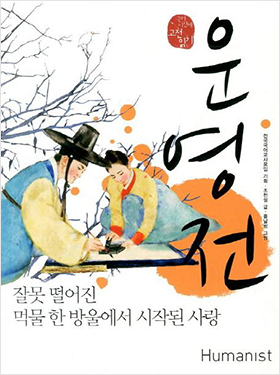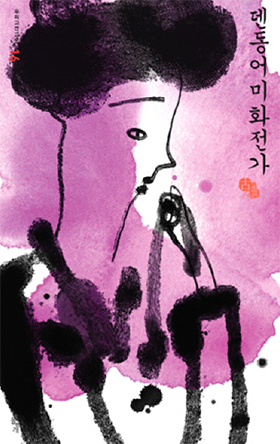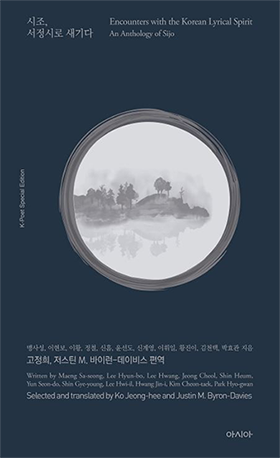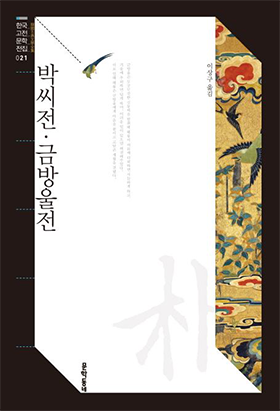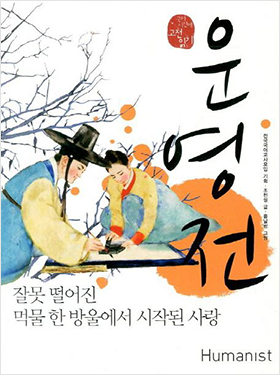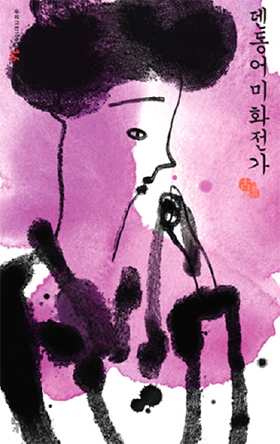- English(English)
- Korean(한국어)
Women in traditional Korean society used to live a marginalized existence. The majority of them, fulfilling their roles as daughters, wives, and mothers, died without leaving their names for posterity. However, these women also had their own ambitions, the capacity and will to accomplish things, and the dignity and strength to stand up for themselves throughout their arduous lives.
In this edition of Themes, we take a look at five works of classical Korean literature featuring women who are portrayed in an empowering light. Unyeong, although she bore the double yoke of being a woman and a palace maid, never gave up on her ambitions. Hwang Jini, although she was a courtesan, never lost her lofty sense of pride, and composed sijo which reflected her bold and unrestrained imagination. Dendong Eomi, although she was widowed at a young age, remarried three times, and had to live an existence riddled with tragedy and hardship, never gave up on life, instead pushing through her wretched fate and the tyrannies of the world to grow into a strong and mature woman. The stories of Lady Park and Princess Bari are tales of growth in which the strength of the female characters is brought to the forefront. Left isolated in confinement inside the women’s living quarters because of her unsightly appearance, Lady Park manages to transform into a dazzlingly beautiful heroine over the course of the story. Princess Bari, although she would have every right to despise her parents who mercilessly abandoned her as a child, instead embarks on a painful journey to save them. She sacrifices her life as a wife and a mother in exchange for a magic elixir with the power to bring her parents and the world back to life, before finally being reborn as a goddess who guides the deceased into the underworld.
A palace maid, a courtesan, a commoner, a noblewoman, a shaman goddess—all the female characters mentioned above each hold different social standings, are subject to divergent fates, and are bestowed with their own distinct dormant potential. In these characters, readers will discover inspiring women who managed to overcome the trials and limitations set on them by their fates.
ㅣ “Love in mid-winter night” in Encounters with the Korean Lyrical Spirit: An Anthology of Sijo
Author Hwang Jini et al.
Translated into English by Ko Jeong-hee & Justin M. Byron-Davies
Publisher ASIA Publishers
Year of Publication 2019
In this sijo written by Hwang Jini, the narrator expresses her longing for her lover on the longest night of the year. She shares her feelings of love and pining for the one she dearly misses as she spends the long winter night alone. The narrator makes a display of the Korean language in all its beauty as she writes in an attempt to reign in her tempestuous emotions.

ㅣ “The Story of Lady Park” in The Tale of the Golden Bell
Author Unknown
Translated into modern Korean by Lee Sang-gu
Publisher Munhakdongne Publishing Group
Year of Publication 2018
This is a story originally written in Hangeul which depicts the exploits of the talented and virtuous Lady Park. One day, a man called Lee Deuk-chun decides to marry his son, Lee Shi-baek, to the daughter of another man called Park Cheo-sa. However,Lee Shi-baek, finding Lady Park too ugly for his liking, refuses to even look at her. He later regrets his actions when he discovers Lady Park has changed into a beautiful woman and begs her to forgive him. This story is set against a real historical backdrop, taking place during the Qing invasion of the Joseon dynasty in the seventeenth century.

ㅣ The Tale of Unyeong
Author Unknown
Translated into modern Korean by Cho Hyun-soul
Publisher Humanist Publishing Group
Year of Publication 2013
Unyeong, who is trapped inside Prince Anpyeong’s palace where she is kept as a maid, meets a young nobleman called Kim Jinsa by chance one day and falls in love with him at first sight. The two embark on a forbidden and dangerous love story which finally ends in tragedy. This classical work of literature is composed of both prose as well as poems exchanged between the two lovers.

ㅣ The Song of Dendong Eomi
Author Unknown
Translated into modern Korean by Park Hye-sook
Publisher Dolbegae Publishers
Year of Publication 2011
Dendong Eomi, who was born as a commoner and the daughter of a petty provincial town official, gets married at the age offifteen only to be widowed shortly after. She is forced to remarry three times. She finally manages to give birth to a son, but he gets badly burned and becomes physically impaired as a result. This work originally written in Hangeul paints a vivid picture of the lives of women at the time of the Joseon Dynasty and takes place during a spring custom called Hwajeon nori, when women would go on a picnic to watch the seasonal flowers and make rice pancakes adorned with azaleas.

ㅣ Princess Bari
Narrator Kim Seok-chul
Translated into modern Korean by Lee Kyung-ha
Publisher Dolbegae Publishers
Year of Publication 2019
The protagonist, Princess Bari, is abandoned by her parents as a child just for being born as a woman, but nevertheless decides to save them from the hands of death. The kind of hardships she is made to go through in the Kingdom of Western Territories under Western Heavens reflect the typical struggles endured by women in traditional Korean society. Since the protagonist saves her father, who threw her away for seeing her as worthless just because of her sex, and that she even goes on the save the world, this tale can be said to portray women in a positive and optimistic light.

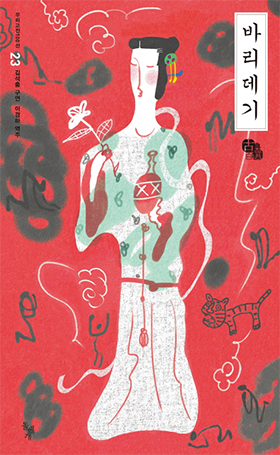
* The above information is based on the original Korean works, and their translations can be found in the links below.
Lee Joo-young
Lee Joo-young is an adjunct professor at the Seoul National University Basic Education Center. She holds a bachelor's degree in Korean language education from Seoul National University, where she also completed her graduate studies, having received a PhD for her thesis on the topic of education of traditional Korean poems and songs. She has given lectures at many universities on a wide variety of subjects, such as Korean language education and classical literature, and currently teaches writing at Seoul National University. Since 2019, she has also been giving lectures on classical Korean literature to foreign students at the Translation Academy of the Literature Translation Institute of Korea.
전통 사회에서 여성들은 약자였고, 그들 대부분은 누군가의 딸, 아내, 어머니로 살다가 이름도 남기지 못하고 떠나갔다. 그러나 그녀들에게도 욕망이 있었고, 무엇이든 성취할 수 있는 능력과 의지가 있었고, 고통스러운 긴 생애 동안 스스로를 지키면서 살아나가는 품위와 저력이 있었다.
이번 큐레이션 시리즈는 한국 고전문학작품에 형상화된 다양한 여성의 모습 중에서 특히 여성이 지닌 힘에 주목하여 다섯 작품을 선정했다. 운영은 여성이자 궁녀라는 이중의 굴레 속에서도 내면의 욕망을 포기하지 않았고, 황진이는 기녀였으나 끝내 도도한 자긍심을 잃지 않으며 대담하고 자유로운 상상력을 시조에 담았다. 덴동어미는 앳된 나이에 청상이 되고 세 번의 개가 또한 고난과 비극으로 점철되었지만, 세계와 운명의 횡포 속에서도 끝내 자신의 삶을 포기하지 않고 마침내 강인하고 성숙한 여성으로 그 길 끝에 선다. 박씨부인과 바리데기는 여성의 힘이 더욱 적극적으로 발현되는 변화의 이야기이다. 박씨부인은 추악한 외모 때문에 소외된 채 규중에 묻혀 있다가, 때를 만나 아름답고 화려하게 여성 영웅으로 변신한다. 무참히 버려진 딸 바리는 원망해 마땅할 부모를 위해 고통스러운 여정을 시작한다. 아내로서, 어머니로서의 삶을 대가로 자신을 희생하여 구해온 생명수는 바리의 부모와 이 세상을 되살아나게 하고, 마침내 바리는 망자를 저승으로 인도하는 여신으로 다시 태어난다.
궁녀, 기녀, 서민 아낙네, 사대부가의 귀부인, 무조 여신으로 신분도, 운명도, 잠재력도 다르지만, 이들을 통해 운명적 한계와 시련을 넘어서는 힘을 지닌 여성의 모습을 볼 수 있을 것이다.
ㅣ 시조 〈동지섣달 기나긴 밤을〉, 《시조, 서정시로 새기다》
저자 황진이 외
역자 고정희·저스틴 M. 바이런-데이비스
출판 아시아
출간 2019
1년 중 가장 밤이 긴 날인 동지섣달을 시간적 배경으로 사랑하는 임에 대한 그리움을 드러낸 황진이의 시조이다. 홀로 지새우는 겨울 밤, 임에 대한 정성과 애타는 마음을 담았다. 여성의 정한을 추스리고자 써내려간 구절로 한국어의 아름다움을 느끼게 하는 작품.

ㅣ 소설 〈박씨전〉, 《박씨전·금방울전》
저자 미상
역자 이상구
출판 문학동네
출간 2018
재주와 덕을 겸비한 박씨의 활약을 그린 한글소설이다. 이득춘과 박 처사는 자신의 아들 딸을 혼례시킨다. 이득춘의 아들 이시백은 박씨가 추하다며 얼굴을 마주하지 않는다. 하지만 박씨가 허물을 벗자 뒤늦게 후회하며 용서를 구한다. 병자호란을 배경으로 하고 있으며 실제 역사적 사건을 소설로 담아냈다.

ㅣ 소설 《운영전》
저자 미상
역자 조현설
출판 휴머니스트
출간 2013
안평대군의 궁에 갇혀 세상과 단절된 운영은 우연히 김 진사를 만나 첫눈에 사랑에 빠진다. 하지만 김 진사와 운영의 위험천만한 사랑은 이내 비극으로 치닫는다. 운영과 김 진사가 주고받은 시와 함께 펼쳐지는 이야기를 담은 고전문학이다.

ㅣ 가사 《덴동어미화전가》
저자 미상
역자 박혜숙
출판 돌베개
출간 2011
덴동어미는 중인인 아전의 딸로 태어나 열여섯의 나이에 시집을 갔지만 잇따른 불행으로 세 번을 개가하게 된다. 늦게 얻은 소중한 아들은 화상을 입어 장애를 가진 ‘덴동이’가 되고 만다. 봄날 화전놀이를 배경으로 조선 시대 서민 여성의 삶을 생동감 있게 그린 한글 가사 작품이다.

ㅣ 무속신화 《바리데기》
구연 김석출
역자 이경하
출판 돌베개
출간 2019
주인공 ‘바리데기’는 딸이라는 이유로 버림받는다. 하지만 바리데기는 자신을 버린 아버지와 아버지의 나라를 죽음에서 구해낸다. 서천서역국에서 감내한 노동은 전통사회에서 여성들의 전형적인 삶의 궤적을 보여준다. 무가치하다고 여겨서 버린 딸이 아버지와 세상을 구한 설정은 여성의 정체성에 대한 긍정적이고 희망적인 해석을 가능하게 한다.

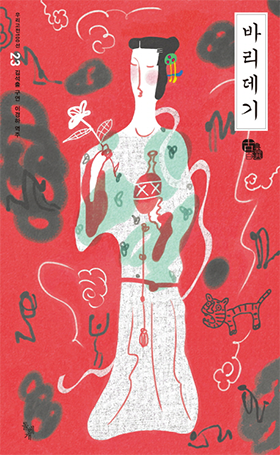
* 본 콘텐츠는 번역서의 원작 기준으로 작성되었으며, 번역서는 아래 연동 항목에서 확인하실 수 있습니다.
이주영
서울대학교 기초교육원 강의교수. 서울대학교 국어교육과 졸업, 이후 동 대학원에 진학하여 고전시가 교육 논문으로 박사 학위를 얻었다. 여러 대학에서 국어교육학, 고전문학, 글쓰기 강의를 담당했고, 현재는 서울대학교에서 글쓰기 강의를 맡고 있다. 2019년 가을부터 한국문학번역원 번역아카데미에 출강, 외국인 수강생들에게 한국 고전문학을 가르치고 있다.
Related Authors1
- Hwang Chini(황진이) Poet
Translated Books3



